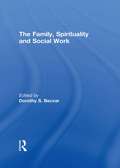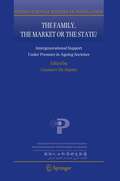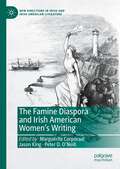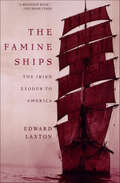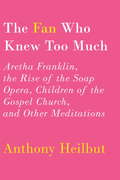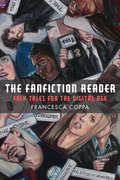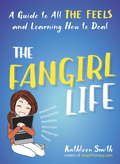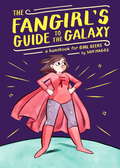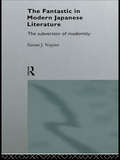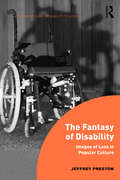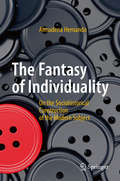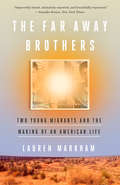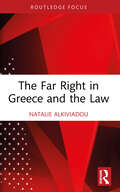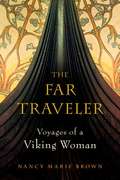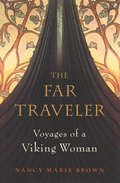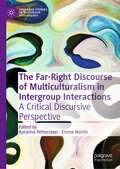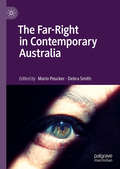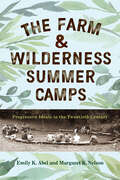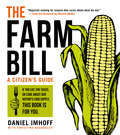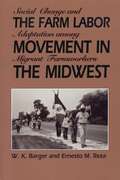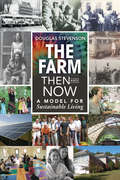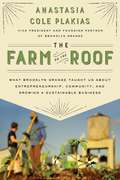- Table View
- List View
The Family, Spirituality, and Social Work
by Dorothy BecvarOne of the few books on this topic, The Family, Spirituality, and Social Work offers mental health professionals new information and research for creating more positive, effective, and satisfying sessions. You will learn how integrating spirituality and therapy can create open and trusting environments where clients feel accepted, respected, and spiritually affirmed.Studies show that religion is not only a way for people to be closer to their god but is also a part of their identity that dictates what they do, how they think, and who they are. The Family, Spirituality, and Social Work will help you understand what religion means to your clients and discusses different methods of answering the questions, “What is religion?” and “How does religion affect our lives?” In addition, you will gain insight into: how a social constructionist perspective can create the most successful sessions for your patients cases studies of how therapists’personal biases, lack of adequate education, personal discomfort, and self-serving needs may contribute to problems and complications in therapy the importance of including spirituality in the education of social workers and other therapists in order to avoid problems and complications with clients the nine major components of spirituality, defined in psychological terms the guidance women may need in therapy to find themselves spiritually given male-centered biases and patriarchal values in many spiritual traditions the seven steps used to help women find their spirituality, including awakening and discovering, as well as a practice model that will help practitioners address women’s spirituality how and why the relational systems model (RSM) can promote wholeness and growth in family therapy groupsProviding you with information on how people perceive religion and spirituality, The Family, Spirituality, and Social Work also features studies of the therapeutic needs of those with different religious beliefs. With this solid knowledge and understanding of religion and spirituality and how it may affect clients, you will create a trusting environment that enhances your clients’experiences and makes you a more successful practitioner.
The Family, the Market or the State?
by Gustavo De SantisThis book touches upon a few of the major challenges that all modern societies will have to face in the near future: how to set up a resilient pay-as-you-go pension system; whether the current balance between expenses and revenues in social expenditure is viable in the future, and, if not, what changes need to be introduced; whether the relative well-being of the current and future cohorts of the old will be preserved, and how their standards of living compare to those experienced by the old in the recent past. At the micro level, the exchanges between generations are presented and discussed in detail: how they have evolved in the recent past in terms of time, money, co-residence and proximity, and what will likely happen next. The geographical scope is on the developed countries, plus South Korea. A rich documentation of tables and graphs supports the scientific analyses and the policy implications in each of the nine chapters of this book, where demography, sociology, and economics intersect fruitfully, both at the macro and at the micro level.
The Famine Diaspora and Irish American Women's Writing (New Directions in Irish and Irish American Literature)
by Jason King Marguérite Corporaal Peter D. O’NeillThe Famine Diaspora and Irish American Women’s Writing considers the works of eleven North American female authors who wrote for or descended from the Irish Famine generation: Anna Dorsey, Christine Faber, Elizabeth Gurley Flynn, Mother Jones, Kate Kennedy, Margaret Dixon McDougall, Mary Meaney, Alice Nolan, Fanny Parnell, Mary Anne Sadlier, and Elizabeth Hely Walshe. This collection examines the ways the writings of these women contributed significantly to the construction of Irish North-American identities, and played a crucial role in the dissemination of Famine memories transgenerationally as well as transnationally. The included annotated excerpts from these women writers’ works and the accompanying essays by prominent international scholars offer insights on the sociopolitical position of the Irish in North America, their connections with the homeland, women’s activities in transnational (often Catholic) publishing networks and women writers’ mediation of Ireland’s cultural heritage. Furthermore, the volume illustrates the generic variety of Irish American women’s writing of the Famine generation, which comprises political treatises, novels, short stories and poetry, and bears witness to these female authors’ profound engagement with political and social issues, such as the conditions of the poor and woman’s vote.
The Famine Ships: The Irish Exodus to America
by Edward LaxtonBetween 1846 and 1851, more than one million people--the potato famine emigrants--sailed from Ireland to America. Now, 150 years later, The Famine Ships tells of the courage and determination of those who crossed the Atlantic in leaky, overcrowded sailing ships and made new lives for themselves, among them the child Henry Ford and the twenty-six-year-old Patrick Kennedy, great-grandfather of John F. Kennedy. Edward Laxton conducted five years of research in Ireland and interviewed the emigrants' descents in the U.S. Portraits of people, ships, and towns, as well as facsimile passenger lists and tickets, are among the fascinating memorabilia in The Famine Ships.
The Famine Ships: The Irish Exodus to America
by Edward LaxtonA “fascinating” account of the experiences of the Irish emigrants who fled a catastrophic crop failure and built new lives across the Atlantic (Library Journal).Between 1846 and 1851, more than one million people—the potato famine emigrants—sailed from Ireland to America. The Famine Ships tells of the courage and determination of those who crossed the Atlantic in leaky, overcrowded sailing ships and made new lives for themselves, among them the child Henry Ford and the twenty-six-year-old Patrick Kennedy, great-grandfather of John F. Kennedy.Edward Laxton conducted five years of research in Ireland and interviewed the emigrants’ descendants in the United States. Portraits of people, ships, and towns, as well as facsimile passenger lists and tickets, are among the compelling memorabilia in The Famine Ships.“A fascinating compilation derived from family histories handed down through the generations; it describes both the horrible conditions aboard the ships and the emigrants’ boundless optimism concerning the freedom of America . . . finally draws attention to the people and the ships that defined a moment in Irish and American history.” —Library Journal“A splendid book, written in a fresh and accessible way.” —Irish TimesIncludes photos and illustrations
The Fan Who Knew Too Much
by Anthony HeilbutA dazzling exploration of American culture--from high pop to highbrow--by acclaimed music authority, cultural historian, and biographer Anthony Heilbut, author of the now classic The Gospel Sound ("Definitive" --Rolling Stone), Exiled in Paradise, and Thomas Mann ("Electric"--Harold Brodkey). In The Fan Who Knew Too Much, Heilbut writes about art and obsession, from country blues singers and male sopranos to European intellectuals and the originators of radio soap opera--figures transfixed and transformed who helped to change the American cultural landscape. Heilbut writes about Aretha Franklin, the longest-lasting female star of our time, who changed performing for women of all races. He writes about Aretha's evolution as a singer and performer (she came out of the tradition of Mahalia Jackson); before Aretha, there were only two blues-singing gospel women--Dinah Washington, who told it like it was, and Sister Rosetta Tharpe, who specialized, like Aretha, in ambivalence, erotic gospel, and holy blues. We see the influence of Aretha's father, C. L. Franklin, famous pastor of Detroit's New Bethel Baptist Church. Franklin's albums preached a theology of liberation and racial pride that sold millions and helped prepare the way for Martin Luther King Jr. Reverend Franklin was considered royalty and, Heilbut writes, it was inevitable that his daughter would become the Queen of Soul. In "The Children and Their Secret Closet," Heilbut writes about gays in the Pentecostal church, the black church's rock and shield for more than a hundred years, its true heroes, and among its most faithful members and vivid celebrants. And he explores, as well, the influential role of gays in the white Pentecostal church. In "Somebody Else's Paradise," Heilbut writes about the German exiles who fled Hitler--Einstein, Hannah Arendt, Marlene Dietrich, and others--and their long reach into the world of American science, art, politics, and literature. He contemplates the continued relevance of the émigré Joseph Roth, a Galician Jew, who died an impoverished alcoholic and is now considered the peer of Kafka and Thomas Mann. And in "Brave Tomorrows for Bachelor's Children," Heilbut explores the evolution of the soap opera. He writes about the form itself and how it catered to social outcasts and have-nots; the writers insisting its values were traditional, conservative; their critics seeing soap operas as the secret saboteurs of traditional marriage--the women as castrating wives; their husbands as emasculated men. Heilbut writes that soaps went beyond melodrama, deep into the perverse and the surreal, domesticating Freud and making sibling rivalry, transference, and Oedipal and Electra complexes the stuff of daily life. And he writes of the "daytime serial's unwed mother," Irna Phillips, a Chicago wannabe actress (a Margaret Hamilton of the shtetl) who created radio's most seminal soap operas--Today's Children, The Road of Life among them--and for television, As the World Turns, Guiding Light, etc., and who became known as the "queen of the soaps." Hers, Heilbut writes, was the proud perspective of someone who didn't fit anywhere, the stray no one loved. The Fan Who Knew Too Much is a revelatory look at some of our American icons and iconic institutions, high, low, and exalted.From the Hardcover edition.
The Fandom of David Bowie: Everyone Says "Hi"
by Sean Redmond Toija CinqueBuilt from stories and memories shared by self-defined David Bowie fans, thisbook explores how Bowie existed as a figure of renewal and redemption,resonating in particular with those marginalized by culture and society. SeanRedmond and Toija Cinque draw on personal interviews, memorabilia, diaries,letters, communal gatherings and shared conversation to find out why Bowiemattered so much to the fans that idolized him. Contextualising the identification streams that have emerged around David Bowie, the book highlights his remarkable influence.
The Fanfiction Reader: Folk Tales for the Digital Age
by Francesca CoppaWritten originally as a fanfiction for the series Twilight, the popularity of Fifty Shades of Grey has made obvious what was always clear to fans and literary scholars alike: that it is an essential human activity to read and retell epic stories of famous heroic characters. The Fanfiction Reader showcases the extent to which the archetypal storytelling exemplified by fanfiction has continuities with older forms: the communal tale-telling cultures of the past and the remix cultures of the present have much in common. Short stories that draw on franchises such as Star Trek, Star Wars, Doctor Who, James Bond, and others are accompanied by short contextual and analytical essays wherein Coppa treats fanfiction—a genre primarily written by women and minorities—as a rich literary tradition in which non-mainstream themes and values can thrive.
The Fangirl Life: A Guide to All the Feels and Learning How to Deal
by Kathleen SmithAre You a Fangirl? * Do you survive boring classes or meetings by imagining your favorite TV couple making out? * Have you posted a lengthy diatribe on the Internet defending a fictional character? * Have you gotten carsick from reading fan fiction on your smartphone? * Has Netflix presented you with the "Are you still watching?" button at least once? If you answered yes, you are a fangirl. (But you already knew that!)Fangirling is more than a hobby; it's a way of life for an enormous community. As a fangirl, you are a passionate, intelligent, and creative creature. But sometimes focusing on the fictional can keep you from putting those qualities to use in your everyday life. Rather than using your pop culture obsessions to avoid your real-life problems, you can tackle issues like stress, anxiety, and low self-esteem by turning obsession into inspiration. If you enjoy flailing over badass fictional ladies or speculating endlessly over plot points, but would like to carve more space for the narrative of your own life, this is the book for you. Written by a proud fangirl who is also a licensed therapist, The Fangirl Life is a witty guide to putting your passions to use in your offline life, whether it's learning how writing fan fiction can be a launching point for greater career endeavors, or how to avoid the myths that fictional romance perpetuates.If you're ready to start translating those fictional obsessions into some bold personal moves, let The Fangirl Life help you become your own ultimate fangirl.From the Trade Paperback edition.
The Fangirl's Guide to the Galaxy: A Handbook for Geek Girls
by Sam MaggsFanfic, cosplay, cons, books, memes, podcasts, vlogs, OTPs and RPGs and MMOs and more--it's never been a better time to be a girl geek. <P><P>The Fangirl's Guide to the Galaxy is the ultimate handbook for ladies living the nerdy life, a fun and feminist take on the often male-dominated world of geekdom. <P><P>With delightful illustrations and an unabashed love for all the in(ternet)s and outs of geek culture, this book is packed with tips, playthroughs, and cheat codes, including: <br>* How to make nerdy friends <br>* How to rock awesome cosplay <br>* How to write fanfic with feels <br>* How to defeat Internet trolls <br>* How to attend your first conAnd more! <P><P>Plus, insightful interviews with fangirl faves, like Jane Espenson, Erin Morgenstern, Kate Beaton, Ashley Eckstein, Laura Vandervoort, Beth Revis, Kate Leth, and many others.
The Fantastic in Modern Japanese Literature: The Subversion of Modernity (Nissan Institute/Routledge Japanese Studies)
by Susan NapierModern Japan's repressed anxieties, fears and hopes come to the surface in the fantastic. A close analysis of fantasy fiction, film and comics reveals the ambivalence felt by many Japanese towards the success story of the nation in the twentieth century.The Fantastic in Modern Japanese Literature explores the dark side to Japanese literature and Japanese society. It takes in the nightmarish future depicted in the animated film masterpiece, Akira, and the pastoral dream worlds created by Japan's Nobel Prize winning author Oe Kenzaburo. A wide range of fantasists, many discussed here in English for the first time, form the basis for a ground-breaking analysis of utopias, dystopias, the disturbing relationship between women, sexuality and modernity, and the role of the alien in the fantastic.
The Fantasy of Disability: Images of Loss in Popular Culture (Interdisciplinary Disability Studies)
by Jeffrey PrestonWhat are the unconscious fantasies circulating in representations of disability? What role do these fantasies play in defining the condition of disability? What can these fantasies teach us about human vulnerability writ large? The Fantasy of Disability explores how popular culture texts, such as Degrassi: The Next Generation and Glee, fantasize about what life with a physical disability must be like, while at the same time exerting tremendous pressure on disabled individuals to conform their identity and behaviour to fit within the margins of these societally perpetuated archetypes. Rather than merely engaging with how disability is represented, though, this text investigates how representations of disability reveal their nondisabled producers to be perpetually anxious subjects, doomed to fear not just the disabled subject but the very reality of disability lurking within. Situated at the nexus of disability studies, media studies and psychology, this text presents an innovative way of analyzing representations of disability in popular culture, inverting the psychoanalytic gaze back upon the nondisabled to investigate how disability can become a lens through which to interrogate the normate subject.
The Fantasy of Feminist History
by Joan Wallach ScottIn The Fantasy of Feminist History, Joan Wallach Scott argues that feminist perspectives on history are enriched by psychoanalytic concepts, particularly fantasy. Tracing the evolution of her thinking about gender over the course of her career, the pioneering historian explains how her search for ways to more forcefully insist on gender as mutable rather than fixed or stable led her to psychoanalytic theory, which posits sexual difference as an insoluble dilemma. Scott suggests that it is the futile struggle to hold meaning in place that makes gender such an interesting historical object, an object that includes not only regimes of truth about sex and sexuality but also fantasies and transgressions that refuse to be regulated or categorized. Fantasy undermines any notion of psychic immutability or fixed identity, infuses rational motives with desire, and contributes to the actions and events that come to be narrated as history. Questioning the standard parameters of historiography and feminist politics, Scott advocates fantasy as a useful, even necessary, concept for feminist historical analysis.
The Fantasy of Individuality: On The Sociohistorical Construction Of The Modern Subject
by Almudena HernandoThis volume is a step in fleshing out the historical reasons for gender inequality from the origins of humankind to present times in the Western world. It argues that despite much critique during the last two decades, gender identities are still ultimately understood as closed and rigid categories which unwittingly reproduce modern Western values. It is a theoretically-informed and up-to-date overview of the history of gender inequality that takes as its starting point the mechanisms through which human beings construct their self-identity. It discusses deeply ingrained assumptions on the relationship between gender and materiality in the present that lead both the academic community and the general public alike to reproduce specific patterns of thought about sex and gender and project them into the past. Starting from a peripheral and heterodox perspective, this book intends to appraise the complexity of gender identity in all its richness and diversity. It seeks to understand the persistence of relationality in supposedly fully individualized male selves, and the construction of new forms of individuality among women that did not follow the masculine model. It is argued here that by balancing community and self beyond the contradictions of hegemonic masculinity, modern women are struggling to build a new, more empowering form of personhood. The author is an archaeologist, who uses her discipline not only to provide data, theory and a long-term perspective, but also in a metaphorical sense: to construct a socio-historical genealogy of current gender systems, through an examination of how personhood and self-identity have been constructed in the Western world.
The Far Away Brothers: Two Young Migrants and the Making of an American Life
by Lauren MarkhamThe deeply reported story of identical twin brothers who escape El Salvador's violence to build new lives in California—fighting to survive, to stay, and to belong.Growing up in rural El Salvador in the wake of the civil war, Ernesto Flores had always had a fascination with the United States, the distant land of skyscrapers and Nikes, while his identical twin, Raul, never felt that northbound tug. But when Ernesto ends up on the wrong side of the region's brutal gangs he is forced to flee the country, and Raul, because he looks just like his brother, follows close behind—away from one danger and toward the great American unknown.In this urgent chronicle of contemporary immigration, journalist Lauren Markham follows the seventeen-year-old Flores twins as they make their harrowing journey across the Rio Grande and the Texas desert, into the hands of immigration authorities, and from there to their estranged older brother's custody in Oakland, CA. Soon these unaccompanied minors are navigating a new school in a new language, working to pay down their mounting coyote debt, and facing their day in immigration court, while also encountering the triumphs and pitfalls of life as American teenagers—girls, grades, Facebook—with only each other for support. With intimate access and breathtaking range, Markham offers a coming of age tale that is also a nuanced portrait of Central America's child exodus, an investigation of U.S. immigration policy, and an unforgettable testament to the migrant experience.
The Far Right in Greece and the Law
by Natalie AlkiviadouThis book critically evaluates the rise of the far-right in Greece, detailing the legal context in which to understand both the emergence of Golden Dawn, the far-right’s largest grouping, and the 2020 court decision, in which it was deemed to be a criminal organisation. Golden Dawn was a political party which, for years, also functioned as a violent subculture movement, with limited to no interference by the state. This book sets out the background to its rise in Greece, tracing its development from the post-Junta era. At the same time, the book provides an assessment of the legal framework within which the far-right has operated, and the legal tools available to tackle it – including criminal law, non-discrimination law, the laws governing political parties and the public order framework, and the country’s international and European obligations. Golden Dawn functioned as both a political party and violent entity until its leadership and parliamentary members were found guilty of leading and participating in a criminal organisation. This book demonstrates that the state of impunity in which Golden Dawn’s violent hit squads functioned was both a facilitating factor for its rise, and potentially for its demise, as the group potentially felt untouchable. And its attention to how Greek Law has tackled, and failed to tackle, Golden Dawn offers a timely and more generally useful assessment of how legislation, courts and policies can best challenge the far-right. This book will be of interest to those teaching and studying in law and politics, as well as more others, concerned with the rise of the far right and violent organizations, especially in Europe.
The Far Traveler: Voyages of a Viking Woman
by Nancy Marie BrownFive hundred years before Columbus, a Viking woman named Gudrid sailed off the edge of the known world. She landed in the New World and lived there for three years, giving birth to a baby before sailing home. Or so the Icelandic sagas say. Even after archaeologists found a Viking longhouse in Newfoundland, no one believed that the details of Gudrid's story were true. Then, in 2001, a team of scientists discovered what may have been this pioneering woman's last house, buried under a hay field in Iceland, just where the sagas suggested it could be. Joining scientists experimenting with cutting-edge technology and the latest archaeological techniques, and tracing Gudrid's steps on land and in the sagas, Nancy Marie Brown reconstructs a life that spanned-and expanded-the bounds of the then-known world. She also sheds new light on the society that gave rise to a woman even more extraordinary than legend has painted her and illuminates the reasons for its collapse. Includes references, notes, sources.
The Far Traveler: Voyages of a Viking Woman
by Nancy Marie BrownThe remarkable story of Gudrid, the female explorer who sailed from Iceland to the New World a millennium ago. Five hundred years before Columbus, a Viking woman named Gudrid sailed off the edge of the known world. She landed in the New World and lived there for three years, giving birth to a baby before sailing home. Or so the Icelandic sagas say. Even after archaeologists found a Viking longhouse in Newfoundland, no one believed that the details of Gudrid&’s story were true. Then, in 2001, a team of scientists discovered what may have been this pioneering woman&’s last house, buried under a hay field in Iceland, just where the epic tales suggest it could be. Joining scientists experimenting with cutting-edge technology and the latest archaeological techniques, and tracing Gudrid&’s steps on land and in the sagas, The Far Traveler reconstructs a life that spanned—and expanded—the bounds of the then-known world. It also sheds new light on the society that gave rise to a woman even more extraordinary than legend has painted her, and illuminates the reasons for its collapse.
The Far-Right Discourse of Multiculturalism in Intergroup Interactions: A Critical Discursive Perspective (Palgrave Studies in Discursive Psychology)
by Katarina Pettersson Emma NortioThis book employs discursive psychology to examine how far-right discourse on issues related to multiculturalism is received, interpreted, adapted and contested in political rhetoric and informal talk. It brings together the latest research from sociology and media studies concerning the circulation of far-right messages in the era of digitalization and the ‘hybrid media system’, and critical discursive psychology research into political and lay discourse pertaining to multiculturalism. Drawing on empirical material from the Nordic context allows for an analysis of political discourse within societies in which a strong tradition of social democratic welfare states now exists alongside the rise of populist and far-right parties. Operating in countries with comparatively high national internet and social media penetration, this book explores the extent to which the success of these parties is linked to their skilful use of social media, in order to mobilise popular support for their political agendas. The collection’s multilevel perspective aims to further the understanding of how the anti-immigration and anti-multiculturalist ideologies propagated by these parties contributes to the mainstreaming of their rhetoric among the political ‘elite’, as well as to the societal normalization of nationalist and xenophobic discourse. In doing so it will provide fresh insights for students and scholars of sociology, social psychology, discourse analysis, media and communication, and political science.
The Far-Right in Contemporary Australia
by Mario Peucker Debra SmithThis book is the first to elaborate on radical and extreme right movements in contemporary Australia. It brings together leading scholars to present cutting edge research on various facets and manifestations of Australia’s diverse far-right, which has gained unprecedented public presence and visibility since the mid-2010s. The thematic breadth of the chapters in this volume reflects the complexity of the far-right in Australia, ranging from the attitudes of far-right populist party voters and the role of far-right groups in anti-mosque protests, to online messaging and rhetoric of radical and extreme right-wing movements. The contributions are theoretically grounded and come from a range of disciplines, including media and cultural studies, sociology, politics, and urban studies, exploring issue of far-right activism on the micro and macro level, with both qualitative and quantitative research methods.
The Farm & Wilderness Summer Camps: Progressive Ideals in the Twentieth Century
by Emily K. Abel Margaret K. NelsonAlthough summer camps profoundly impact children, they have received little attention from scholars. The well-known Farm & Wilderness (F&W) camps, founded in 1939 by Ken and Susan Webb, resembled most other private camps of the same period in many ways, but F&W also had some distinctive features. Campers and staff took pride in the special ruggedness of the surrounding environment, and delighted in the exceptional rigor of the camping trips and the work projects. Importantly, the Farm & Wilderness camps were some of the first private camps to become racially integrated.The Farm & Wilderness Summer Camps: Progressive Ideals in the Twentieth Century traces these camps, both unique and emblematic of American youth culture of the twentieth century, from their establishment in the late 1930s to the end of the twentieth century. Emily K. Abel and Margaret K. Nelson explore how ideals considered progressive in the 1940s and 1950s had to be reconfigured by the camps to respond to shifts in culture and society as well as to new understandings of race and ethnicity, social class, gender, and sexual identity. To illustrate this change, the authors draw on over forty interviews with former campers, archival materials, and their own memories. This book tells a story of progressive ideals, crises of leadership, childhood challenges, and social adaptation in the quintessential American summer camp.
The Farm Bill: A Citizen's Guide
by Daniel Imhoff Christina BadaraccoThe Farm Bill is one of the most important pieces of legislation the American president signs. Negotiated every five to seven years, it has tremendous implications for food production, nutrition assistance, habitat conservation, international trade, and much more. Yet at nearly 1,000 pages, it is difficult to understand for policymakers, let alone citizens. In this primer, Dan Imhoff and Christina Badaracco translate all the "legalease" and political jargon into an accessible, graphics-rich 200 pages.Readers will learn the basic elements of the bill, its origins and history, and perhaps most importantly, the battles that will determine the direction of food policy in the coming years. The authors trace how the legislation has evolved, from its first incarnation during the Great Depression, to today, when America has become the world's leading agricultural powerhouse. They explain the three main components of the bill—farm subsidies, food stamps or SNAP, and conservation programs—as well as how crucial public policies are changing.As Congress ramps up debate about the next farm bill, we all need to understand the implications of their decisions. Will there be limits on subsidies to huge agribusinesses? Can we shift toward programs that reward sustainable farming practices? Will hungry kids get the help they need? These are questions that affect not only farmers, but everyone who eats. You have a stake in the answers.The Farm Billis your guide.
The Farm Labor Movement in the Midwest: Social Change and Adaptation among Migrant Farmworkers
by W. K. Barger Ernesto M. RezaThe Farm Labor Organizing Committee (FLOC) was founded by Baldemar Velasquez in 1967 to challenge the poverty and powerlessness that confronted migrant farmworkers in the Midwest. This study documents FLOC's development through its first quarter century and analyzes its effectiveness as a social reform movement. Barger and Reza describe FLOC's founding as a sister organization of the United Farm Workers (UFW). They devote particular attention to FLOC's eight-year struggle (1978-1986) with the Campbell Soup company that led to three-way contracts for improved working conditions between FLOC, Campbell Soup, and Campbell's tomato and cucumber growers in Ohio and Michigan. This contract significantly changed the structure of agribusiness and instituted key reforms in American farm labor. The authors also address the processes of social change involved in FLOC actions. Their findings are based on extensive research among farmworkers, growers, and representatives of agribusiness, as well as personal involvement with FLOC leaders and supporters. "
The Farm Then and Now
by Douglas StevensonIn the Summer of Love in San Francisco's Haight-Asbury, a charismatic young hippie by the name of Stephen Gaskin launched "Monday Night Class"--a weekly event which drew together an eclectic mix of truth-seekers and flower children. Soon the class became a caravan, and after touring the country this colorful crew decided to seek a plot of land and found a commune based on their shared values. Thus was born The Farm in Summertown, Tennessee.The Farm Then and Now presents the story of a group that has defied the odds, blending idealism with a practical approach to intentional community and creating a model for sustainable living. Just as the Monday Night Classes taught students to open their hearts and minds, The Farm continues as a School of Change, demonstrating ways to operate collectively in terms of: Land, water, and stewardship Health care, building, and infrastructure Cooperation, compassion, and spiritual valuesFor humans to survive as a species, we must relearn the skills needed to work together; the lessons of The Farm can be applied in any community or organization. The Farm Then and Now addresses both the successes and shortcomings of this unique ongoing social experiment, showing how what was once the largest commune in the world has evolved into an exceptional example of living lightly on the earth.Douglas Stevenson has been a member of The Farm Community for forty years. His company Green Life Retreats hosts the Farm Experience Weekend and other instructional seminars about sustainable living.
The Farm on the Roof: What Brooklyn Grange Taught Us About Entrepreneurship, Community, and Growing a Sustainable Business
by Anastasia Cole PlakiasThe founders of Brooklyn Grange, the world's largest green rooftop farm, share their inspirational story of changing the world through entrepreneurship. In their effort to build the world's first and largest commercial green rooftop farm, the founders of Brooklyn Grange learned a lot about building and sustaining a business while never losing sight of their mission--to serve their community by providing delicious organic food and changing the way people think about what they eat. But their story is about more than just farming. It serves as an inspirational and instructional guide for anyone looking to start a business that is successful while making a positive impact. In The Farm on the Roof, the team behind Brooklyn Grange tell the complete story of how their "farmily" made their dream a reality. Along the way, they share valuable lessons about finding the right partners, seeking funding, expanding, and identifying potential sources of revenue without compromising your core values--lessons any socially conscious entrepreneur can apply toward his or her own venture. Filled with colorful anecdotes about the ups and downs of farming in the middle of New York City, this story is not just about rooftop farming; it's about utilizing whatever resources you have to turn your backyard idea into a sky-high success.
